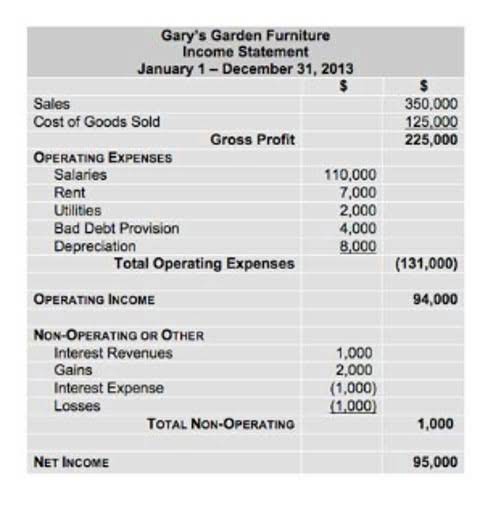The only downfall here is the limitations on the number of clients you can invoice at one time. However, you can delete a client to make room for more, then easily undelete recurring clients as you need to invoice them. We’ll make sure your people get paid and handle all payroll-related taxes for you. Second, you’ll be able to allocate those resources responsibly. Save your valuable time for the big picture story your numbers are telling and let your bookkeeper organize the rest.
Key Features of Fund Accounting Software
- For that reason, it might be a little complicated to track the revenues and expenses in a church, compared with other organizations.
- Commonly, it is one of the primary measures in church bookkeeping to perform a bank reconciliation on the most recent bank statement.
- Bookkeeping means recording these actions to allow churches to pull reports to inform donors and the government on their financial history easily.
- Also, read customer reviews to learn if users are satisfied over the long term.
- One misconception is that churches are exempt from all forms of taxation.
- Consider seeking recommendations from other churches or consulting with financial professionals who specialize in church accounting.
Set up your system properly to make things easier for both your bookkeeper and bookkeeping and payroll services your accountant. When recording tithes and offerings, it is important to include relevant details to maintain a comprehensive record. This includes the donor’s name, date of contribution, and the amount contributed. By keeping track of this information, the church can acknowledge the generosity of its members and provide accurate contribution statements for tax purposes. A church accountant must be careful when keeping records on restricted and unrestricted funds.
Visit our support hub
Ensure that all records are accurate and up to date to make the reporting process smoother. Overall, recording church income requires attention to detail and a commitment to financial stewardship. By implementing effective systems and maintaining comprehensive records, the church can ensure transparency, accountability, and responsible management of its financial resources. Perhaps the biggest need for church accounting rather than bookkeeping, is when an audit or review is required.
Bookkeeping for Churches: How to Balance Faith and Finances
We understand the unique challenges of managing church finances because we’ve been there. Founded by a pastor, Simplify Church’s sweet spot is helping small-to-medium-size churches with their financial needs. Revenue recognition refers to the procedures your church uses to record the church accounting funds it brings in correctly. Now that you know what church bookkeeping entails and why it’s important, let’s walk through some additional tips to set your organization up for success.
How does accounting help churches?
- Financial statements ensure you’re using donations correctly and limit the chance of auditing.
- As a nonprofit with tax-exempt status, churches have a legal obligation to report their earnings and spending to the IRS.
- To maintain their tax-exempt status, churches must align their activities with their religious purposes and avoid excessive unrelated business activities.
- It is also best for churches that use separate HR and payroll software or that have few employees for whom they must process payroll.
- For example, funds may be designated for missions, building projects, or benevolence.
Read on to learn everything you need to know about accounting for churches, including how to get started. Misunderstandings about churches and their tax obligations are common. One misconception is that churches are exempt from all forms of taxation.
- Far too many churches tell one story with their words and actions but a completely different story with their finances.
- But we’re also a team of accountants, bookkeepers, and consultants.
- Business accounting focuses on maximizing profitability through revenue generation, cost control, and constant financial analysis.
- Your congregation cares about how you plan to spend their tithes and offerings.
- Say goodbye to the stress and overwhelm of managing church finances and hello to peace of mind.
- There is no shortage of accounting software out there, so to avoid decision overload, we’re going to tell you about a few of our favorites.
Perform The Bank Reconciliation
Monthly financial statements provide a snapshot of the church’s financial health, allowing you to track income and expenses, assess budget adherence, and identify any areas that require attention. These statements typically include an income statement, balance sheet, and cash flow statement. In addition to recording the income, it is essential to keep track of any expenses related to fundraising activities. This includes costs for marketing materials, event venues, and any professional services utilized. By accurately accounting for both income and expenses, the church can have a comprehensive understanding of the financial impact of its fundraising efforts. Churches often engage in fundraising activities and receive donations for specific causes or projects.
Meet your team
Churches, like any other organization, rely on effective bookkeeping practices to maintain their financial records accurately and transparently. Proper bookkeeping is crucial for churches as it not only ensures compliance with legal and regulatory requirements but also helps in making informed financial decisions. Let’s delve into the world of church bookkeeping and discover how to handle it with utmost efficiency and accuracy. Bookkeeping means recording these actions to allow churches to pull reports to inform donors and the government on their financial history easily.
Selecting Church Accounting Software: A How-To Guide
- Donorbox integrates with QuickBooks to help you manage your accounting while raising more for your church!
- This includes the donor’s name, date of contribution, and the amount contributed.
- That can add up to a lot of opinions about how money should be spent.
- The system saves organizations tons of money as compared to hiring a live accountant.
- Quality bookkeeping answers some of the biggest questions about your current financial situation so you can stop worrying about it.
- You can present reports that detail how money is spent leaving no room for doubt.
- The designation will also maintain transparency with donors allowing them to see how their funds are used.
Beyond financial repercussions, noncompliance can damage a church’s reputation, leading to diminished donations payroll and support. Transparency and accountability are critical for maintaining the trust of congregations and donors. In the case of expenses, the church bookkeeping manager should know the person who is responsible for payments. The methods of payment should be clearly explained, and the bookkeeper should know them. Most of the time, expenses are run through a paycheck, but in some cases, they are performed by credit cards or even in cash. The church accounting system should be aware of these methods to find the best solutions to track them.





